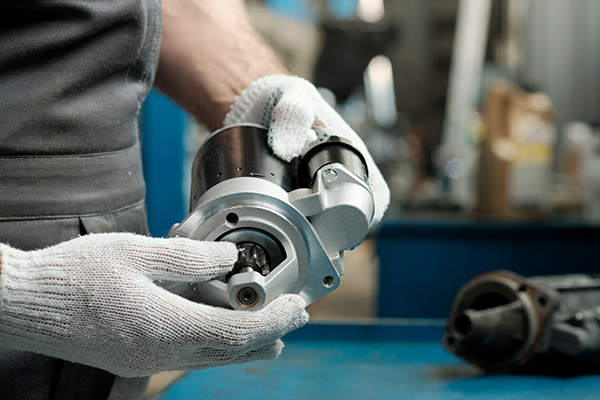
When your car doesn't start, the frustration is immediate and profound. Often, the culprit is the starter, a critical component responsible for starting the engine. Recognizing the signs of a failing starter can save you time, money, and stress. We'll share the key indicators of a starter on the verge of failure, helping you stay ahead of potential breakdowns and keep your car running smoothly.
The Starter's Role in Your Car
The starter motor is a small yet powerful electric motor that cranks the engine when you turn the ignition key or push the start button. It's the heart of your car's starting system, initiating the internal combustion process. Without a functioning starter, your car won't start, leaving you stranded. Knowing the warning signs of a failing starter can prevent unexpected inconveniences and costly repairs.
Sign 1: Clicking Sound When Turning the Key
One of the most common signs of a failing starter is a clicking noise when you turn the key or push the start button. This sound indicates that the starter solenoid, a small component that transmits the electrical current from the battery to the starter motor, is malfunctioning. While a weak battery can also cause the clicking noise, repeated clicking typically points to a starter issue. If you hear this sound, you must get your starter inspected immediately to avoid being stranded.
Sign 2: Slow or Intermittent Cranking
Another telltale sign of a failing starter is slow or intermittent cranking. When you turn the key, the engine should start quickly and smoothly. However, if you notice that the engine cranks slowly or starts intermittently, it's a clear indicator that the starter motor is struggling. This issue can be due to worn-out components inside the starter motor or electrical problems affecting its performance. Ignoring this sign can lead to complete starter failure, leaving you unable to start your car at all.
Sign 3: Grinding Noise
A grinding noise when starting your car is a serious sign that should not be ignored. This noise usually indicates that the gears inside the starter motor are worn out or damaged. Grinding can also occur if the starter drive gear is not engaging properly with the flywheel. If left unchecked, this problem can cause significant damage to the engine's flywheel, resulting in expensive repairs. If you hear a grinding noise, it's crucial to have your starter inspected and repaired as soon as possible to prevent further damage.
Sign 4: Starter Remains Engaged After Engine Starts
If you notice that the starter remains engaged even after the engine has started, it's a clear sign of a malfunctioning starter. Normally, the starter motor disengages once the engine is running. However, if it remains engaged, it can lead to severe damage to the starter and the engine. A faulty ignition switch or a sticking starter relay often causes this issue. Immediate attention is required to prevent extensive damage to your vehicle.
Maintaining Your Starter for Longevity
Regular maintenance is key to ensuring the longevity of your starter. Keep your battery in good condition, as a weak battery can put additional strain on the starter motor. Regularly inspect and clean the battery terminals to ensure a strong electrical connection. Additionally, have your starter inspected during routine maintenance checks to identify and address any potential issues before they escalate. By staying proactive, you can avoid unexpected starter failures and keep your car running reliably.
Don't wait until it's too late. Schedule an appointment with Advanced Auto Care Center Florida for professional maintenance and avoid unexpected breakdowns.